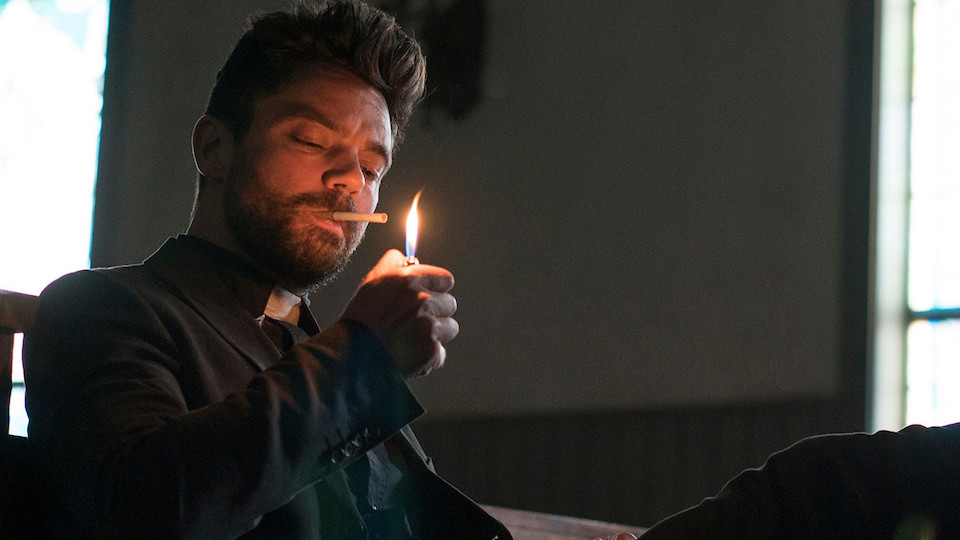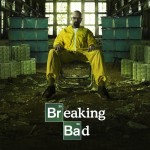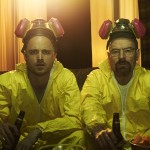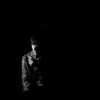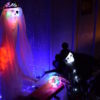Words ANDREW PARKS
Here’s the thing about being a Hollywood composer: You’re always the last in line, the last to see or hear anything, the last to make any crucial creative decisions. And no one cares really, even if all you have is a couple of days to cut the entire score for a key episode of an Emmy-nominated drama with a serious cult following.
“There was a point last year when I had Blacklist, Better Call Saul, and Flesh and Bone all going at the same time for a couple weeks,” says composer Dave Porter with a laugh. “It got real hairy.”
I ask him what he does in that situation, since you can’t exactly tell one show they’re less important than another one.
“Everybody comes first,” he explains, again with a laugh because you have to have a sense of humor with these things. “You try to lay out realistic timelines and build in the time you know you’re going to need to accomplish not only that, but everything else on your plate.”
While he was on a well-deserved vacation in New York last week, Porter was kind enough to speak to us about his entire career in an exclusive interview, right on the cusp of this weekend’s Preacher finale…
Is New York the place you like to vacation in rather than live?
[Laughs] I lived in New York for a very long time, during my twenties. I went to school just outside New York City, at Sarah Lawrence College. And I lived in New York until I was 30. Then I was part of an exodus of people who left New York after 9/11. I moved to LA in 2002. And that’s where I’ve been since. But I still have a New York number because when I first moved to LA, I had clients in both places and shuttled a lot back and forth.
You must have had no choice but to live in LA once you got involved with more major TV shows.
That’s totally true. I wish I’d done it earlier in my life. I hemmed and hawed about it for a bunch of years, but I was having a fun time and making a good living writing music for commercials and documentaries—the kind of work you find in New York as a composer. But to do the dramatic stuff, you absolutely have to be in LA. It was a sobering transition, moving to LA, because I thought my New York credits would help me leapfrog ahead of people. But of course, it didn’t, so I spent a couple of years on the couch watching Law and Order, waiting for the phone to ring.
Is being a composer as competitive and cutthroat as being an actor?
It is. You’d be amazed at how many composers are cycling throughout LA. It’s very competitive, right up there with acting, directing, and writing. There’s just a lot of talented folks. The good news is there’s more work than there’s ever been in terms of quality television to work on. But it’ll never be enough for all the people who want to do it.
Right; it’s not just Law and Order spinoffs anymore.
Yeah, I never had a TV in my twenties, so it was novel when I moved to LA. LA is a very different town; in New York, you can walk out the door and entertain yourself. In LA, you kinda have to have a plan. You have to have your people, and things going on, and that takes a while. The first few years are pretty tough for most people who move to LA.
But you said you were part of an exodus. Does that mean you already had friends there?
It was a different world. I had one friend who lived in LA but there were others coming from New York around the same time. It was kinda find-your-own-way. Lots of people will tell you that the first friends you make in LA won’t be the ones that last; you’re just desperate for people to hang with, to get out of the house. It’s a process of finding your own crew. But now I feel like I have as good of friends in LA as I once did in New York. I still miss my friends in New York though.
Yeah. I’ve been away for about a year and a half after living about a decade there, and that’s the one thing I miss the most—the people. That, and the feeling that you could walk for five minutes and feel like you’re part of something, whereas LA can feel very compartmentalized.
Yes. You can see a lot going on but you’re not invited.
How did that affect you as a creative person? Was it hard to find inspiration when you first moved to LA since it doesn’t have that buzzing vibe the second you walk out the door?
That’s a really good question.And it is totally true. The biggest difference in New York is that because people lived in tiny shoeboxes, nobody worked at home. So you tend to have these collectives of people working in commercial spaces. All of the studios I worked in were surrounded by other people doing artistic work. That was inspiring. They became friends, and colleagues, and coworkers. That is entirely different from LA. Almost everyone has enough space. It’s more economical to have your studio at home. Which is what I do now; my studio is in the backyard, where there used to be an attached garage. That’s incredibly common in LA, but that means you aren’t around other people who are doing creative work. I missed that a lot at first. I’ve gotten used to it, and now I don’t think about it much. I missed a lot when I first came to LA.
Did you play in a lot of bands that’ll remain nameless in your twenties?
[Laughs] That’s a great question, too, but I didn’t actually. I tended to be the guy running the soundboard. Or who was recording in in big studios where they’d let me in at 3 in the morning to record my friends’ bands. A lot of that comes from me being a keyboard player outside of DC, a very punk rock town. There was no place for a keyboard player in any of the bands [laughs] my friends wanted to be a part of or even see. I ended up being more on the technical, engineering, and production side of things. I have to say I credit a lot now to my self-sufficiency in those areas. As a composer, I mix all of my own music, and I’m very hands on. That was a boon for me ultimately.
People in the budgeting department must love you.
Especially early on. In my twenties, it was common for a composer to sit in a room with an engineer in front of them, mixing your music as you write it. I used to say, ‘You know, you don’t really have to pay that person. I can do all of this.’ I did that to wow people in the ‘90s, but now it’s incredibly common of course. Most composers, especially young ones, have to do it themselves. Only the elite composers have someone else come in and mix for them.
You’ve been given the keys to how a lot of these shows sound, so is it a control issue of you too?
It totally is. It’s both a control freak issue and a creative issue, especially when I’m working on music that isn’t traditionally orchestral. A lot of the music I do is not, so mixing is part of the creative process. Sculpting the sounds I’m using are part and parcel in the piece I’m making. It’s a little different when you’re recording a string orchestra, because a string orchestra sounds like a string orchestra unless you’re doing something really crazy. How I mix is part of my sound, if I can be as brazen as to say that.
Well even with the orchestral stuff, you’re mangling and manipulating a lot of the sounds, right?
Exactly.
You have a traditional, classical background. Did you have a record or artist that opened you up to the non-classical world?
It was the classic suburban thing. I grew up in a family full of classical musicians. Not professional, but all I knew was classical music, probably until I was nearing the end of elementary school. What [changed] things for me was the kids across the street who were a little older. They had older brothers, who’d be sitting outside working on their Trans Ams and listening to Rush or Led Zeppelin or Van Halen. That first got me interested, but a few seminal records moved me. I remember hearing that early Prince record with “Controversy” on it, which was a huge wow, opening my eyes thing. It’s funny, because I can visualize the vinyl. I remember some Queen records, and interestingly on the electronic side, I remember that first Howard Jones record [Human’s Lib], believe it or not. It was very innovative, and still is.
[youlist pid=”PLQHdmy_iLS7ejdCJU9_mvm1TFB0brlav9″ width=”620″ height=”349″]
What is it about that Howard Jones record?
It was that one, and Yaz’s Upstairs At Eric’s. The pure, unadulterated electronic-ness of it really appealed to me. There was no effort to sound organic. It was so out of this world for someone who grew up listening to classical music. I love that about it, and I still do actually. I never understood this idea of synthesizers trying to sound like strings or trombones. What’s so amazing about those instruments is how they do totally new things. That really sparked my interest with synthesizers.
And what about Queen and Prince? Did they both seem larger than life?
Yeah, it was that whole persona, that attitude, the sexiness of it, and the sheer emotion that’d come out of those guys. It’s amazing still. I’m not sure any of that stuff will ever be duplicated. I sound like a grumpy old man.
Nah!
A couple months ago, I was flipping through cable and landed on that Palladium channel. It has random music stuff on it. Anyways, they had a concert of Queen in Montreal from ’72 or ’73. Watching it was just spectacular—the showmanship and the level of musicianship was really impressive.
And you never wanted to be the center of attention yourself? You always wanted to be the guy twiddling knobs in the background?
It’s funny. In terms of traditional rock music, I never played in a rock band, but the electronic music interested me in terms of its technology. I was in high school when MIDI came out. That was the beginning of my desire to make my own music. Classical music had a huge place in my life but it was all playing Mozart and Chopin. I never had any interest in making classical or orchestral music until I got to college, and my electronic experiments melded with my knowledge of classical music. And then there was the power of combining music with other mediums. In school, that wasn’t just film. I also loved writing music for modern dance, doing sound design for theater, installation pieces.
You didn’t feel stifled by Sarah Lawrence’s music program at all?
It was a struggle at times. There was always members of the faculty who were very disdainful of electronic and experimental music. I definitely had to skirt by some of those folks, but I was lucky to have some instrumental professors there, like John A. Yannelli. I’m super thankful for that.
What’s one takeaway from that teacher that you still use in my work now?
The biggest thing, honestly, is improv. It’s something I had no experience with until I got to college, but it’s now pretty much the basis of everything I write, from sitting down and trying to get in a headspace to just playing around. I try to position my studio so that all the instruments available to me are turned on and ready to go. I also tend to pace a ton. So I walk around the room, put the picture on loop, and move around until I find some germ of something that gets me going.
With Breaking Bad, you were given two weeks tops to write and record the music for an episode. Is the process similar for all the other shows you work on?
Honestly, Breaking Bad and Better Call Saul are the most generous. That’s the most time I’ll ever get. With Blacklist, for example, I’m almost always still writing the music the day before it airs, if you can believe that. It’s a function of television schedules, particularly the big network dramas that have to make 22 episodes a year. They have so much to do that they squeeze it for every minute they have. And I’m last in the process, so any extra time cascades down to me.
Which is really interesting. I think a lot of viewers assume scripted shows are wrapped months before they air.
And it’s gotten more that way, not less. Television used to follow a much more set schedule. Before cable and Netflix started producing television year round, there used to be a fixed schedule people follow. Now it’s all ‘get it done, when you can get it done.’ Cable tends to be better. AMC is good about that. For example, Preacher still has a few episodes left, but I finished it last week. But the network shows can be really down to the wire.
Without badmouthing the shows you’ve worked on, can you think of a time where you were just like, ‘Man, I can’t do this tonight; I just don’t feel inspired’?
[Laughs] You know, what’s really weird is it never happens. I always get it done, and I complain carefully. The reality is that’s part of the job, especially in television. Film is a little different. If you really got squeezed on a movie, you could stand up and complain in some situations. But with TV, there’s an expectation that you’re gonna get it done. I try to do fewer all-nighters as I get older but they still happen to me.
What’s the longest chain of days where you literally didn’t sleep?
I had a period last year where I went probably a week without sleeping outside of naps that were a couple hours. Not because of one particular show; because schedules got moved around and ended up on top of each another. You try your best to line these shows up so that they move from one to the next, which worked out for me great this year. I did Better Call Saul, then I started on Preacher the next week. But it doesn’t always work out that way. You design it that way but then they change their schedules. There was a point last year when I had Blacklist, Better Call Saul, and Flesh and Bone all going at the same time for a couple weeks. [Laughs] It got real hairy.
Does working on three different shows with their own distinct vibe really mess with your head? You must feel caught between three completely different vibes.
Exactly. Part of what I do is look ahead in the schedule and figure out ways I can devote entire days to one specific project. I wake up in the morning and say, ‘Today is a Blacklist day.’ Or I say ‘it’s a Preacher day.’ It takes me a minute to get into that vibe and then it’s really hard to shift gears. Sometimes a fire comes up and there’s nothing you can do about it. But I try to avoid it whenever possible. For me, it’s about entire days on certain projects, not just blocks of hours.
You’re technically on vacation right now. Is that really rare?
It varies. I try to take a little time off in the summer. I didn’t really get to last year, but normally I get a few weeks off in the summer. And the nice thing about Hollywood is it does tend to close around the holidays. So there’s usually two weeks at Christmas. But other than that, it feels like there’s always something going on, or something that comes up. It gets tough to plan in advance because schedules are always changing.
With a new season or show, do you usually get at least one episode way ahead of time so you can get a sense of its overall mood?
With a new show, generally you’re going to be in a position where you have more time with the first episode. Or if you’re lucky, a couple of episodes. That’s really necessary because on a TV show, all of the creative heavy lifting happens in the first few episodes. That’s when you’re designing your whole palette of what the show is going to sound like. Those decisions are going to stick around for the rest of its run. Not to say that a show can’t evolve. A show will evolve if it’s a good drama, but generally speaking, you have to make so many important decisions. And that takes time. It takes trial and error. And it takes making sure everyone’s happy and that you have a game plan not just in the short term, but in the long term, if you’re able to know what the long term is. With subsequent seasons, you’re off and running. They tend to mix a show as they air, so you tend to get one done every week.

“I’m a really big believer in melding the worlds of sound and music—how that can really be a powerful part of an aural experience when you’re watching something”
Do you ever get into a comfortable enough situation with a show runner where they at least tell you where a show is headed?
It’s a fine balance for me. I’m always offered scripts, but I tend not to do that because (1) it’s strictly a time issue; I can’t read every script for every show I’m doing, and (2) I tend to be very visually motivated. The beauty of being last in the process is being able to sit down and watch a nearly completed episode like a fan would, and be surprised when I should be, or excited when I should be excited. Those things clue me into the strengths and weaknesses of that show and what music could do to support and enhance it. So, yes, in general I tend to have broad discussions with show runners. I’ll ask questions about how something with a character may repeat itself long term. I kept notes on those things and they help inform the ways in which I can help.
Do you have a say in where outside music is placed, or is that strictly the music supervisor’s job?
I’m definitely part of the discussion in terms of where songs should be used. What’s going to be effective at any given moment is a discussion most shows have. Beyond that, I tend to stay out of that. It’s definitely a music supervisor’s job, unless I’m involved with it for some reason.
What are a few bizarre requests you’ve gotten over the years in terms of having to produce fake bands or a commercial? Like didn’t you have to do a band for Jessie Pinkman at one point?
We did. We created this terrible garage band called TwaüghtHammër. A few of their songs appear in sneaky moments throughout the show, and also as DVD extras. Gilligan’s crew always has interesting stuff for me to do. Like I did a lot of the promos for Breaking Bad. And last year we did a mariachi promo for Better Call Saul. It’s quite funny; Vince wrote the lyrics, and the music supervisor and I worked with a very legit mariachi band to get that done.
The previous year, we did another promo for Better Call Saul with Junior Brown. He performed it, but I wrote it with a friend of mine and Vince did the lyrics. I’m in charge of a lot of Saul’s zany commercials. The music for them, at least, going all the way back to Breaking Bad. I also composed ringtones—some real special ones, like when Hank’s [phone] rings and Marie is calling him. I did the elevators in Howard Hamlin’s law office. They have a very special chime to them. I love that stuff, because I’m a really big believer in melding the worlds of sound and music—how that can really be a powerful part of an aural experience when you’re watching something. Preacher has a ton of that stuff too.
Like?
The big one for me was the lullaby the two angels sing, based on a poem I didn’t write. I wrote a whole new, very dark melody for that, that we use over and over again in the show. And there’s a lot of interesting traditional gospel or church hymn music we do new interpretations of. I’ve been having a lot of fun with the unique musical opportunities in Preacher.
A lot of comic book fans said no one could ever film Preacher. Were you familiar with it before you were asked to be on the project?
I was. I never owned it, but I had read most of it. It was really big when I was in college in the early ‘90s. A lot of friends were deeply into it. I was never a huge comic book guy, but I was certainly aware of it. So I came in with the best of both worlds—a sense of it, but I wasn’t tied to it. That was important because diehard fans of the comic are right; there’s no way, and frankly I don’t know why you’d want to, to make a show that’s the same as the book. They are they’re own thing; you can accomplish things in a graphic novel that you can’t in another medium. That’s what’s special about them. But I do think these guys have taken a lot of what’s cool about the books and come up with something new I hope will find a broader audience.
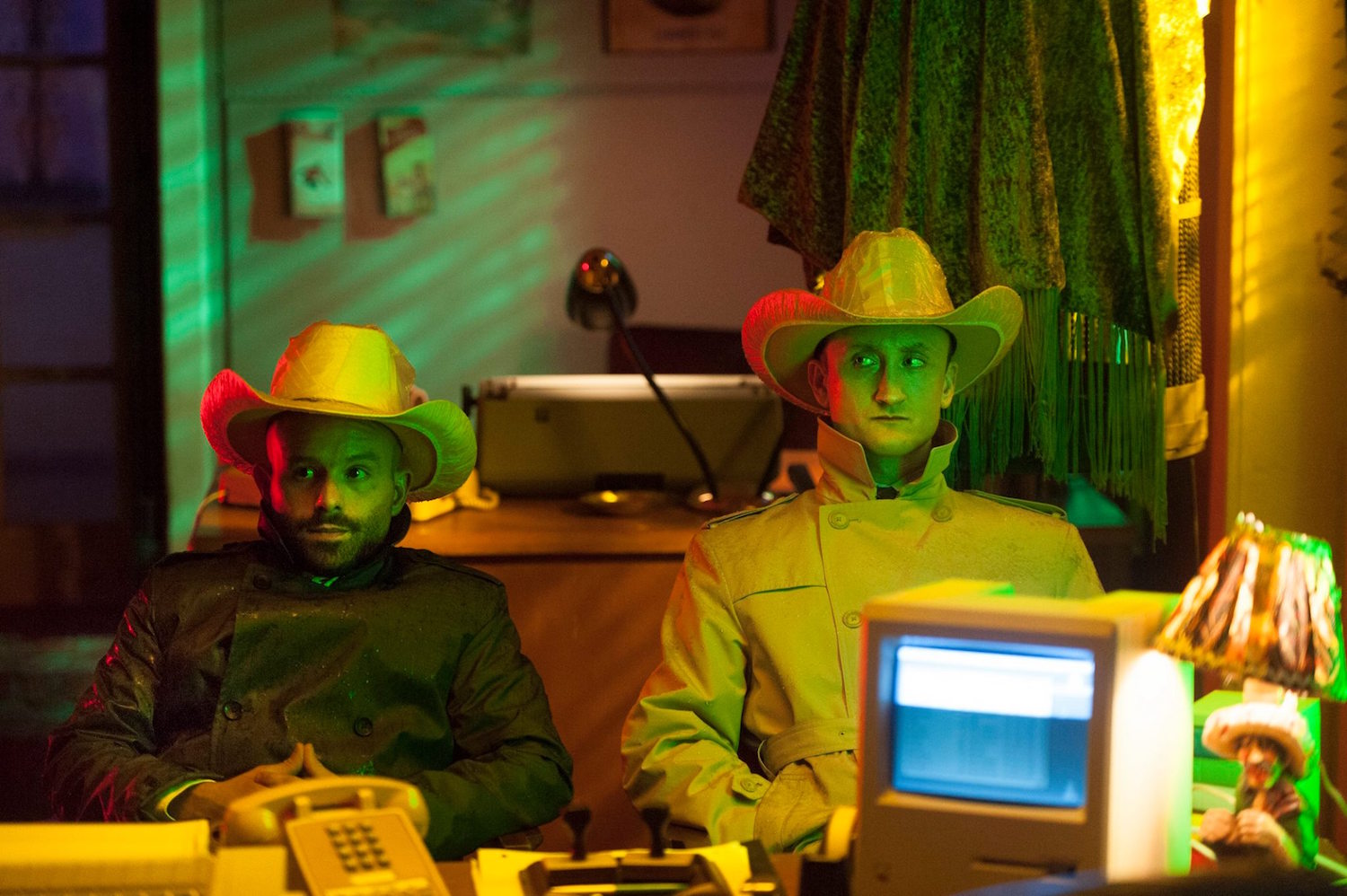
Did you try and watch the show first, and read the book closer later?
We did a pilot on that show, so I actually finished that over a year ago. When I came into the pilot, I watched some early cuts and then I went back to the novel, the first one. Mostly just to reinforce the characters in my mind—what they were, and what their headspace is because they can’t tell everyone’s story in the first episode. I haven’t looked at the comic ever sitnce because the show is kinda its own thing.
I feel like the first episode was so defiant about what it was going to be that it found its own voice right away.
I think so. They worked very hard on it. And it really sets the tone, particularly the humor. Which is the hardest part by far. How do you capture the awfulness of what’s going on along with the humor?
So what did you think of the Preacher pilot? The first episode is kinda insane. Was that exciting or overwhelming?
Both. I was super excited about it because it provoked me in a way I hadn’t been provoked since I saw the Breaking Bad pilot. It felt different from anything I’d seen on television. I loved that about it, but you’re absolutely right; it was totally daunting. Mostly because there are no rules. There’s no applicable creative box to put yourself in and say ‘the music is going to do this’. Because the music does everything like everything else on that show. It’s scary, it’s hilarious, it’s gory, it’s very cerebral, and sometimes it’s just slapstick. It’s the full range of everything, and that’s a big challenge for me. I think I’m getting better at it as we go on. Part of it is being able to embrace that creatively, to walk in and say, ‘Okay, here’s a new episode, and it may or may not sound like the last one.’ You know what I mean? Because I don’t know where we’re going, or who we might be concentrating on this week. It’s never boring, that’s for sure.
What about the challenge of capturing Texas itself and avoiding the cliches of being ‘Southern sounding’ or certain vibes that have been done to death, like Morricone vibes or whatever.
I pretty much avoided it, to be honest. I really did, for a lot of reasons. First of all, if you’re familiar with the books, you know Texas isn’t the only place where things occur. And if there’s the possibility of the show not always being in Texas, I didn’t want to ground myself to that necessarily. And also to me, parts of the story are funny because they’re happening in Texas but the reality is the story is much bigger than that. It’s god and vampires—this crazy little town could be anywhere. It’s like Twin Peaks. It’s got that same kind of crazy cast of characters.
I’ve also done a bunch of shows that were shot in Albuquerque now. I did [that sound] at times in Breaking Bad, and I touch a little more on it with Saul. It’s got more of that twangy guitar and Southwest vibe, so I didn’t want to do that again with Preacher. I needed it to be its own thing. The music for Preacher is definitely varied, but a lot of it is actually orchestral, or mixtures of orchestral and synthesizers in a way that’s very middle of the last century. Like Ligeti or Schoenberg—very atonal and zany orchestral music combined with world music, electronica, and whatever else happens to work at any given moment.
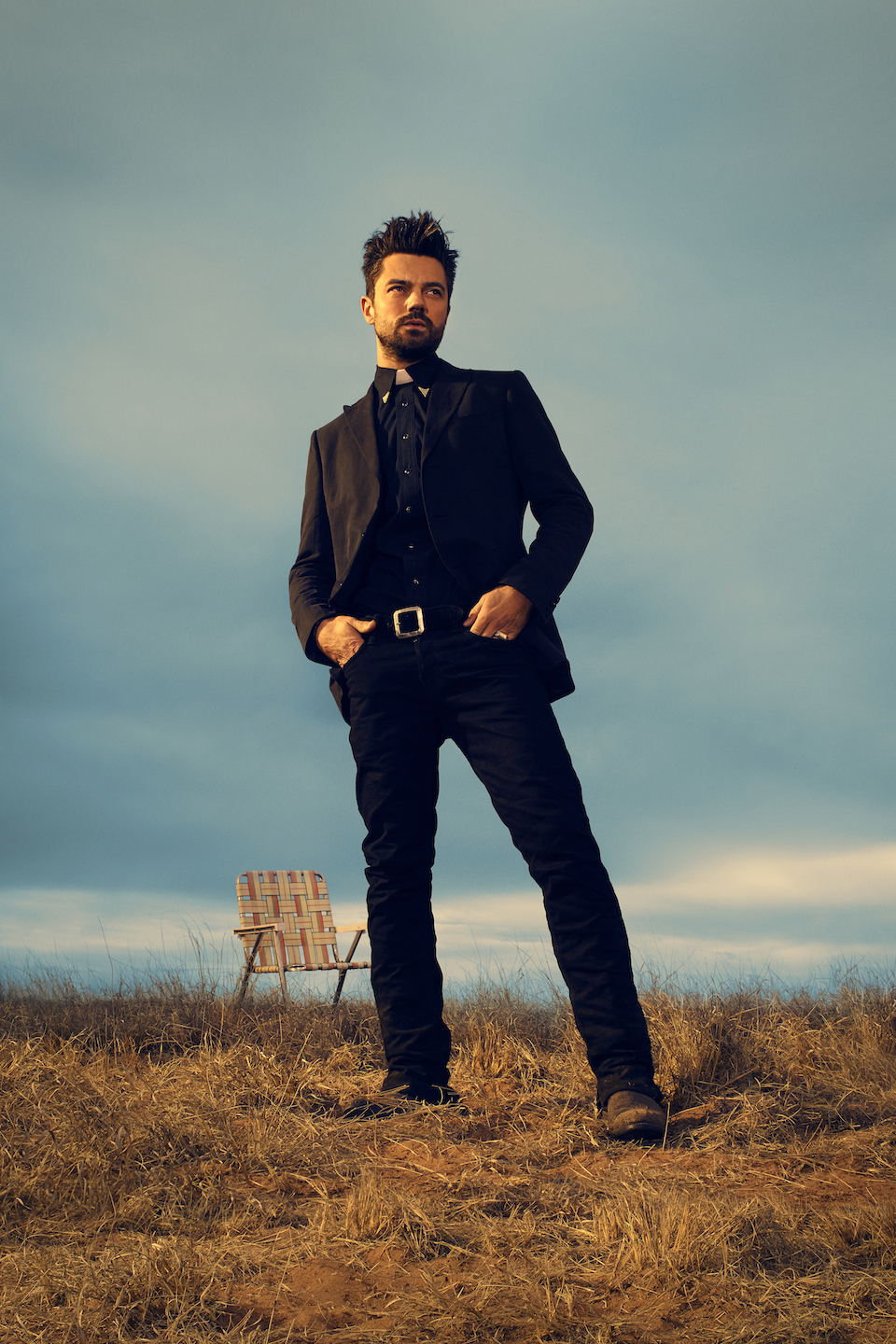
And with Breaking Bad, you were using a lot more Eastern instruments.
I was, yeah—definitely a lot of wood instruments with Breaking Bad. The other thing is that a lot of the licensed music we’re using on Preacher grounds it to country and Western. We’re using a lot of Johnny Cash and a lot of great Southern hymnal music—stuff like that’s enough to place us in Texas. I didn’t need the score to also do it.
Each of the shows you just mentioned have a very strong sense of place. Do you try to go on set with each of them, or at least visit the cities and towns in which they’re set?
I have been to New Mexico a bunch of times. And it was very helpful to me. I’m an East Coast kid and grew up where things were green and tree-filled. There’s something spectacular about the desert that’s very unique. It’s akin to being at the beach and looking at the ocean. It has a size and scale about it that you can’t appreciate unless you’re looking at it. I think Breaking Bad, and Saul in particular, take advantage of that scope. It was definitely important for me to see it.
I know less about Texas to be honest. And I didn’t have a chance to go there because they didn’t shoot it there. They shot it in Albuquerque.
When did you first spend an extended period of time in New Mexico then?
Season two of Breaking Bad.
Breaking Bad took a while to get off the ground and earn its audience. When did you realize it was actually taking off, and that there are some serious fans you have to answer to now?
For me, it was coming to the end of season four. Before that, I really felt like Breaking Bad was a show lots of folks talk about but very few have actually seen.
Like The Wire?
Exactly. It’s one of those things that came up in conversation and no one wanted to sound like they hadn’t seen it. But most people actually hadn’t. I’ve heard Vince say this, too, but I really think the catalyst for Breaking Bad was when the first episodes ended up on Netflix after season three. We really started to notice it on season four; it was something we never imagined. You have to remember we were praying to even have a second season. We thought it was miraculous. And the second season will always be my favorite.
Why is that?
It was a special time for us. We were out there confident but pressure free. We had some fans, it was fun, we were making a cool show, and we were really pushing the limits of what we thought we could do. But there wasn’t so much pressure, and it was really a small group of us. As things went on, more and more executives started showing up to see the finished product. But there was a time there that was really special to me in season two and the early part of season three. To be a part of something like that was really special. That’s why I’m really glad I get to still work with all of those people on Better Call Saul. The vast majority of us are still there.
Did the beginning of Better Call Saul feel like that second season of Breaking Bad in a way because it was kinda like, ‘Screw you guys. We’re going to do whatever we want with this show’?
[Laughs] Yes and no. It felt really familiar because of all the people but it was much more pressure-filled because we were coming off Breaking Bad and there was a lot of doubters about doing Better Call Saul. And Vince and Peter were adamant about it being a totally different show. That was actually pretty hard to do because we’d come off of doing something pretty successful together, so to throw a lot of those recipe to the side of the road and ignore them was a challenge.
When did it feel like you guys figured it out?
I didn’t feel super comfortable until season two. We were figuring it out by the end of season one, but by season two it all came together. We really found ourselves; I am immensely proud of season two. I think it’s spectacular.
The other thing about Saul is it’s managed to make something that’s kind of boring—a lot of legal room talk—interesting. At the end of the day, beyond all of the Breaking Bad subplots, you’re making music for a show about a lawyer.
And it can’t sound procedural. It’s not LA Law. The secret to that is keeping it all about Jimmy, and making the music as emotional as possible. Even something as simple as a montage of him going through files, we try to keep it connected to whatever emotions are prominent for him. At the end of the day, Saul is about a very small sphere of people and how they affect each other and themselves.
Are there any recurring motifs in Saul in the way you had them in Breaking Bad sometimes, like when the Heisenberg hat got put on or whatever?
No, there actually isn’t. I’m not sure we will. My assumption is that the evolution of Jimmy to Saul isn’t going to be something you notice at any given moment. It’s just gonna evolve. And that’s the reason I don’t use motifs very often, especially on Vince Gilligan shows because the characters are never the same from one episode to the next. They’re always evolving and changing, so to stick them with a theme that says ‘here comes Jesse’ or ‘here comes Mike’ is problematic because they’re very different people from one season to the next. What I tend to do instead is devote certain instruments to different characters so I can evolve alongside them.
Since it’s the freshest in your mind, what are a few moments from Preacher you’re especially proud of, parts where the sound design and the music really came together.
You’re putting me on the spot now. [Laughs] I love the angels. There’s a scene where they’re deciding whether to call heaven on the phone or not. I had an enormous amount of fun doing that. I love the big action set pieces. Like the music for the big chainsaw fight in the church. I also had a lot of fun with the Seraphim, and that big fight scene in the Sundowner Hotel. Those are fun because I haven’t been able to do a lot of that in my career—those big action pieces in a way that’s interesting and relates to our show. The one that really stands out for me is the Saint of Killers stuff. You’ll understand it a lot more when we get to the end of the first season, but to be able to take those pieces that are so separate from the rest of the story, at least now, and give him this absolutely hard to listen to, cacophonous, big and powerful, atonal orchestral music was a blast. I had so much fun doing it. I have to thank Seth [Rogen] and Evan [Goldberg] for saying to absolutely go for it with that stuff. The sky was the limit in terms of how crazy and painful it could be. You justdon’t get that too often as a composer [laughs]. And if you’re familiar with the comic books, you know they’re very important characters so there will be many more opportunities to write music for him as time goes by.
All anyone has talked about since the rise of shows like Breaking Bad and The Soprano is the blurred line of morality that’s become so common. Very few people are simply good or evil. Does that make it both exciting and daunting as a composer because you don’t have this very cut-and-dry way of representing different characters? Like I still don’t know if Jesse is supposed to be a bad guy or not. I just know that he’s possessed.
I’ve kind of come up in the era of TV that’s featured these characters so to be honest, I don’t know much else. Having that said, I do embrace it because when it’s done well, it’s very nuanced. I think that’s part and parcel of what’s made TV get so much better over the past 10, 15 years is that these stories are not spoon-fed or cut-and-dry. People have different reactions to them, and that’s great. As a composer, my number one goal with these characters is not to spell things out for people. It’s to try and express whatever they’re expressing at any given moment and not dwell on it. Walter White is the biggest example of that. Some people think Walter White is the devil from season one, and there’s people who defended him right up until the finale and beyond. And that’s great. That’s how it should be.
What side are you on?
[Laughs] Walter lost me after the death of Jane. That was a huge musical moment for me and an enormous turning point in the show for sure.
To close things off, can we talk about the overall moods you tried to capture with each show?
Wow, I mean, they’re all so different. Breaking Bad is so varied. If you listen to my score from early in the series, it’s light at times but by the end, it’s very heavy. Saul has been more wistful. It’s a little dreamy, it’s a little hopeful. Preacher is many, many things, but it’s always sure of itself [laughs]. It’s very bold, it’s very confident. Blacklist is gritty and dark and action-filled. it’s full of pace and energy in a way my cable shows are not. Flesh and Bone is totally another story. You should check it out if you haven’t seen it. It’s all orchestral. It’s a very dark series about ballet dancers by one of the Breaking Bad writers. It’s very emotional, sad, and depressing.
It must have been fun to go back to your classical training a bit.
Absolutely. I’m trying to do more of that as people get to know me for the other stuff. I love orchestral stuff, and am always looking for the right project to do it with.
What does your family think of all these bleak shows you’re working on, and how much they break from your classical background musically?
I’ve been amazed at my mom especially. She’s pretty squeamish but she watches everything. It’s been good for [my parents], to open their eyes. While they’re as skeptical as I was early on of whether I could make a career of this, they’ve definitely embraced it. I feel very fortunate to have their support.
What are you working on next?
A film actually. A movie tentatively called The Disaster Artist. It’s directed by James Franco, and based on a cult Hollywood movie that’s considered ‘the worst movie ever made’. It’s called The Room, and has a crazy story of how it got made and a following in LA.
Did Seth introduce the two of you?
He did. And then, yeah, in the fall we have The Blacklist and a possible Blacklist spinoff too.
Are you done with this season of Preacher?
I am.
High five man.
Thank you. Enjoy it!
